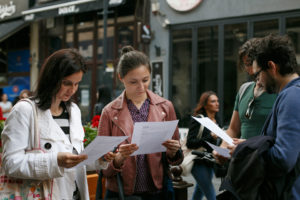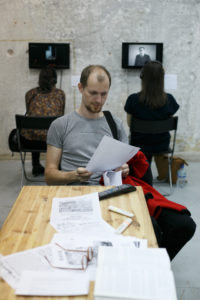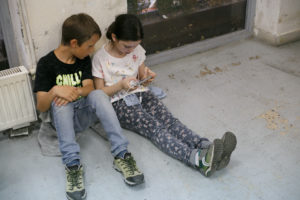Knots (1970) is, perhaps, British psychiatrist R.D. Laing’s most mysterious and unorthodox written work. Whereas previous texts such as The Divided Self: An Existential Study in Sanity and Madness (1960), The Self and Others (1961), and The Politics of Experience and the Bird of Paradise (1967) proposed an articulated phenomenological and clinical understanding of psychosis and schizophrenia as socially rooted, Knots is an intensely affective descent into the madness of human communication. It has been read as mystical poetry or as a work of art. In the preamble of the book, though, Laing explains that his intention is to delineate a series of familiar patterns, those he had experienced himself: ‘knots, tangles, fankles, impasses, disjunctions, whirligogs, binds.’ A precise logic designating, to use Guattari’s term, a defective abstract machine, unfolds in the five dialogical exchanges between a self and the other or, to name them, Jack and Gill, banal heroes of traditional British nursery rhymes. In other words, logic is slippery and ultimately useless, for it offers no defense against the emerging subterranean demons of the self: figures of authority and the struggle for autonomy, love and hate, admiration and envy, truth, suspicion and conceit.
KNOTS, the display articulated at ODD, aims to construct a communicative situation, which is already entangled, disjunctive, double-bound, and in an impasse: in other words, problematic. Let us name the two instances of communication: the geo-cultural-politics of two spaces – improperly called Bucharest (via Paris) and London (via Copenhagen) – should talk to each other. They should do so in a research exhibition, inspired by the model of London-based MayDay Rooms, a space archiving material documenting ‘social movements, experimental culture and radical expression of marginalised figures and groups’, but also a hub for projects linking these with contemporary social and political struggles. A part of the materials hosted by ODD come from MayDayRooms or, by proxy, from a series of groups, institutions and initiatives directly involved in or revisiting the British counterculture of the end of the 1960s and 1970s. Some of them can be consulted on the spot and photo-copied by readers throughout the duration of the project. These will be knotted, bound, already in disjunction, with the local context, taking as a pivotal points issues of Revista ARTA from the same period, and the work of Romanian artist and critic Iulian Mereuță. A recluse figure, largely unknown to the public, Mereuță developed a body of self-exploratory work with an important political dimension during the 1960s and 70s, until his flee to Paris in 1978. After his death in 2015, his extensive archive is under the care of artist Decebal Scriba.
Special thanks:
Sarah Hepworth and the University of Glasgow’s R.D. Laing Collection
Kenneth Robinson and Surveillance Films
Tom Shandel and Getaway Films Inc.
Howard Slater and the MayDayRooms
Gillian Whiteley and the Politicized Practice Research Group at Loughborough University
Janna Graham and Nottingham Contemporary
Jaakko Karhunen, Aino-Marjatta Mäki, Aria Spinelli, Chris Collier, Becki Turlington-Smith, Raluca Voinea and Eduard Constantin
























Photos by Petre Fall.
Reading Material
Biographies
Cristina Bogdan
Born and bred in Bucharest, educated in Paris, hardened in London. Cristina Bogdan is online editor of Revista ARTA and runs ODD since 2014. She lectured in Art Theory in London between 2012-2015 and is currently a PhD student in Aesthetics at the Sorbonne.
Vlad Morariu
Vlad Morariu (b. 1983, Iași) is a researcher, lecturer and curator. He gained his PhD in Contemporary Art History and Theory at Loughborough University, where he has been teaching since 2014. His work focuses on contemporary configurations of art practices of institutional critique, and he is interested in exploring connections between philosophy, psychiatry, art theory, and curatorial and artistic practices. Together with Jaakko Karhuunen (Loughborough University), he is currently doing research in the R.D. Laing archive hosted by Glasgow University.